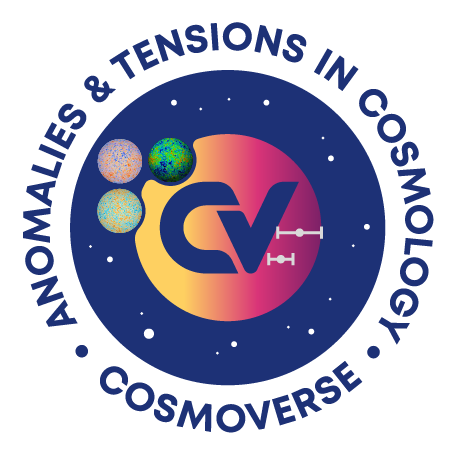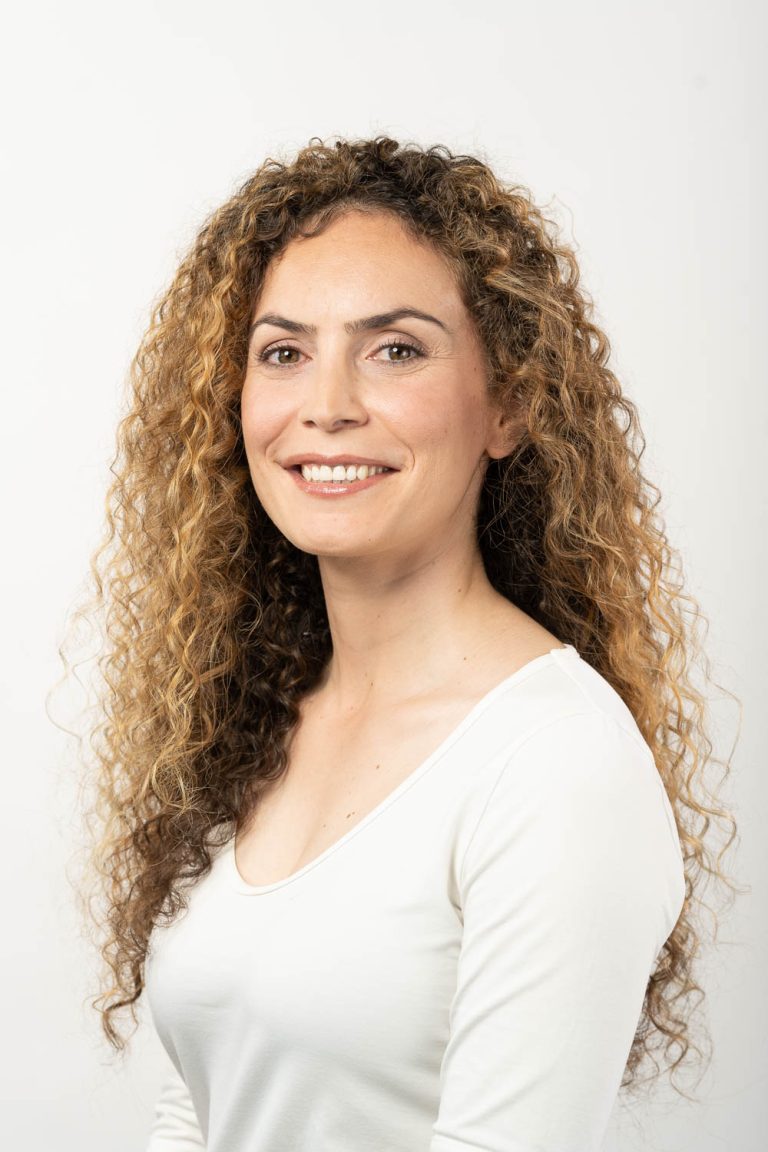What is your name, affiliation, academic position, and job title?
Lavinia Heisenberg, Heidelberg University, full professorship, Prof. Dr.
What is your journey?
Since the beginning of my doctorate, I have been able to collaborate with various international scientists and change my place of residence several times. I lived in Heidelberg, Geneva, Cleveland, Waterloo, Stockholm and Zürich. I have also spent extended research visits at the Universities of Tübingen, Salamanca, Bilbao, Madrid, Tokyo, Lisbon, Marseille, Valencia, Pisa, Paris, Brussels, Cape Town, Ankara and Waterloo.
What is your field of research and/or what project are you involved in?
Am I a theoretician, a data analyst, an experimentalist, an educator, a philosopher or an economist? A little bit of all. My research spans from the mathematical study of gravity, the philosophy of time and quantum, to the experimental study of woods and polymers, student centered and digital teaching and effects of green technology support policies on carbon emissions.
Briefly describe your career trajectory to date. What positions have you held, when and where?
I obtained my PhD from Département de Physique Théorique of Geneva University in 2014. Subsequently, I was a fellow at the Nordic Institute for Theoretical Physics in Stockholm (NORDITA, 2014–2015) and a prized fellow at the renowned Institute for Theoretical Studies of ETH Zurich (ITS, 2015–2018). In January 2019, I was promoted to an assistant professor at the Institute of Theoretical Physics at ETH Zurich. In January 2022, I followed a call from the University of Heidelberg for a permanent full professorship.
What are your research plans?
My research interests lie at the interface between gravitational theoretical physics, cosmology, particle physics and astrophysics ranging from purely theoretical topics to more observational subjects. My past research already includes these aspects, comprising the fundamental properties of quantum gravity, effective field theories (EFTs), their cosmological consequences and observational signatures. It is my aim to explore further the interplay between particle physics and cosmology as well as studying how to use astrophysical, cosmological and particle physics probes to test fundamental physics and gravitational interactions.
How does CosmoVerse fit within those plans?
At CosmoVerse, a primary focus revolves around the field of Cosmology, delving deeply into the intricate realm of cosmological tensions and the exploration of fundamental resolutions. My passion for this subject matter is unwavering.
Which of your skills are you most proud of, or find most useful?
Leadership, Project management, Problem solving, Analytical thinking, Communication of complex ideas, Presentation skills, Writing skills.
What new skills would you like to learn in the next year?
I aim to delve more profoundly into Digital Leadership Strategies, equipping myself with the essential skills and knowledge required for mastery in this field.
What are the most exciting open questions in your research area?
I believe that either proving or disproving the existence of dynamical dark energy, or making a breakthrough discovery related to dark matter, has the potential to propel the field to new heights. Additionally, advancements in understanding non-linear structure formation and the exploration of gravitational waves within alternative-gravity theories would represent significant milestones.
What advances or new results are you excited about or looking forward to?
I believe that one of the key inquiries in this field pertains to the viability of various gravity theories when subjected to the upcoming wealth of data. If observations reveal any anomalies or provide solid evidence of deviations from the established cosmological standard model, the subsequent crucial task would be to narrow down and rigorously examine the permissible range of alternative theories.
What is your view on cosmic tensions? How does your work connect with this open question in the community?
The research topic concerning cosmic tensions is truly captivating. Within the literature, diverse perspectives exist, with some entirely dismissing these tensions while others treat them with gravity. I am particularly eager to monitor whether the Hubble tension intensifies in the upcoming years, potentially compelling us to explore beyond the confines of the standard model. In collaboration with fellow researchers, I have taken a model-independent approach to investigate the prerequisites that dark energy models must fulfill in order to simultaneously address the H0 and sigma8 tensions (as discussed in arXiv:2201.11623).
In your career so far, at what point were you the most excited, and what were you excited about?
The Higgs discovery marked an exceptionally thrilling milestone, as did the initial findings from the Planck satellite. More recently, the revelation of gravitational waves was nothing short of awe-inspiring.
What is the biggest obstacle that is slowing down your research field right now?
Regrettably, there are only a handful of individuals who both appreciate and are willing to venture beyond the confines of conventional wisdom. We face a shortage of groundbreaking ideas and visionary thinkers.
What role do you think a community network like CosmoVerse can play in developing theoretical astroparticle physics and cosmology?
Community network like CosmoVerse are essential for many reasons like collaboration, resource sharing, data sharing, theoretical developments, funding opportunities, education and outreach… The list is long.
What do you like and dislike about being a scientist?
There are numerous aspects to appreciate about a career in science, such as the opportunities for innovation, discovery, intellectual engagement, the autonomy to explore, and the sense of contributing to and shouldering responsibility for society’s progress. However, it’s important to acknowledge that being a scientist also comes with its share of challenges. Among these, the most prominent include navigating the uncertainty and accepting occasional setbacks, contending with job instability, facing the pressures of competition, managing criticism and potential rejection, and embracing the often demanding work hours that extend into weekends and evenings.
What’s your favourite food? Why?
I have a deep appreciation for a wide range of cuisines, spanning from Italian, Spanish, Japanese, Thai, Korean, Greek, and beyond. In particular, I have a fondness for cheese and chocolate. Hence, for me, there is no place more delightful than Switzerland. 🙂
Your favourite scientist and/or science fiction film?
Einstein is unquestionably my favorite scientist. His remarkable ability to think outside the conventional boundaries of thought led to a genuine revolution in the field of physics. When it comes to science fiction films, Interstellar holds a special place in my heart. Its precision in depicting scientific concepts, combined with its profound emotional resonance and stunning visual presentation, make it my top choice in the genre.
How do you relax after a hard day of work?
I do usually find a path leading from writing, outreach, teaching, sustainability or even archery to physics. I have composed articles about the universe, convinced my colleagues with my different scientific concepts, dared to push forward Einstein’s theory of gravity, held many physics lectures and conference talks, given outreach talks, and gotten fresh perspectives on persistent research questions while lifting weights, witnessed each time the stubborn nature of gravity while climbing, discussed with philosophers the meaning of time, enjoyed breathtaking walks in nature and trained as an astronaut candidate.
In your view, what’s the most important challenge that humanity faces currently?
The unrestrained pursuit of growth and the absence of sustainability present imminent challenges with far-reaching consequences, particularly for our children and the generations that will follow. Prioritizing sustainability is of paramount importance in safeguarding the Earth’s welfare and fostering a harmonious coexistence between the present and future. This commitment entails responsible resource stewardship, environmental preservation, and the ethical duty to leave behind a habitable world for the well-being of all.

